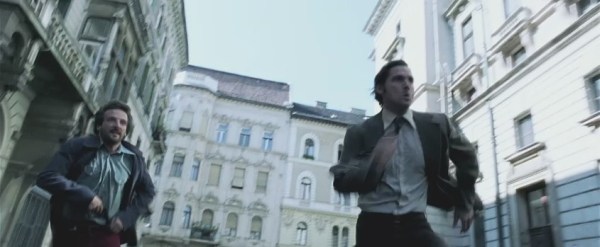Michael Barrier has pointed out an interesting footnote to animation history posted on YouTube: a 1968 protest short by Ward Kimball. Kimball was a lead animator at Disney, one of the so-called “Nine Old Men” who formed the core of the studio’s staff in its mature period through to its seventies nadir. The most overtly comic of the Nine Old Men, he was lead animator for such characters as Jiminy Cricket in Pinocchio and the crows in Dumbo, and directed Disney’s Oscar-winning experiment with stylised animation Toot, Whistle, Plunk and Boom (1953).
In 1968, on his own time, he directed Escalation, an anti-war, anti-LBJ short that makes scatalogical reference to Pinocchio. It couldn’t be further from stereotypical Disney family values. A mild adult content warning applies.
